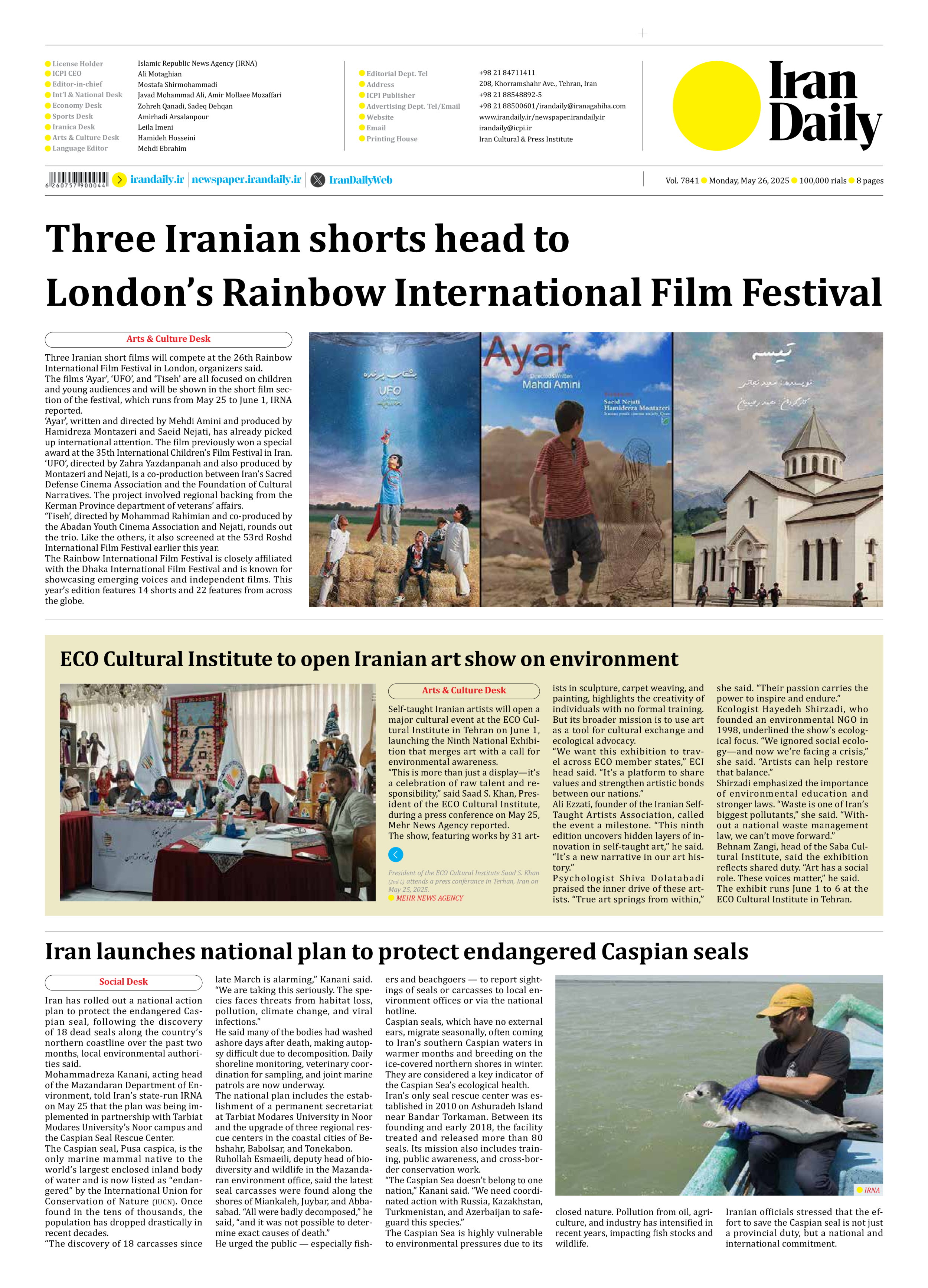
Iran launches national plan to protect endangered Caspian seals
Iran has rolled out a national action plan to protect the endangered Caspian seal, following the discovery of 18 dead seals along the country’s northern coastline over the past two months, local environmental authorities said.
Mohammadreza Kanani, acting head of the Mazandaran Department of Environment, told Iran’s state-run IRNA on May 25 that the plan was being implemented in partnership with Tarbiat Modares University’s Noor campus and the Caspian Seal Rescue Center.
The Caspian seal, Pusa caspica, is the only marine mammal native to the world’s largest enclosed inland body of water and is now listed as “endangered” by the International Union for Conservation of Nature (IUCN). Once found in the tens of thousands, the population has dropped drastically in recent decades.
“The discovery of 18 carcasses since late March is alarming,” Kanani said. “We are taking this seriously. The species faces threats from habitat loss, pollution, climate change, and viral infections.”
He said many of the bodies had washed ashore days after death, making autopsy difficult due to decomposition. Daily shoreline monitoring, veterinary coordination for sampling, and joint marine patrols are now underway.
The national plan includes the establishment of a permanent secretariat at Tarbiat Modares University in Noor and the upgrade of three regional rescue centers in the coastal cities of Behshahr, Babolsar, and Tonekabon.
Ruhollah Esmaeili, deputy head of biodiversity and wildlife in the Mazandaran environment office, said the latest seal carcasses were found along the shores of Miankaleh, Juybar, and Abbasabad. “All were badly decomposed,” he said, “and it was not possible to determine exact causes of death.”
He urged the public — especially fishers and beachgoers — to report sightings of seals or carcasses to local environment offices or via the national hotline.
Caspian seals, which have no external ears, migrate seasonally, often coming to Iran’s southern Caspian waters in warmer months and breeding on the ice-covered northern shores in winter. They are considered a key indicator of the Caspian Sea’s ecological health.
Iran’s only seal rescue center was established in 2010 on Ashuradeh Island near Bandar Torkaman. Between its founding and early 2018, the facility treated and released more than 80 seals. Its mission also includes training, public awareness, and cross-border conservation work.
“The Caspian Sea doesn’t belong to one nation,” Kanani said. “We need coordinated action with Russia, Kazakhstan, Turkmenistan, and Azerbaijan to safeguard this species.”
The Caspian Sea is highly vulnerable to environmental pressures due to its closed nature. Pollution from oil, agriculture, and industry has intensified in recent years, impacting fish stocks and wildlife.
Iranian officials stressed that the effort to save the Caspian seal is not just a provincial duty, but a national and international commitment.







